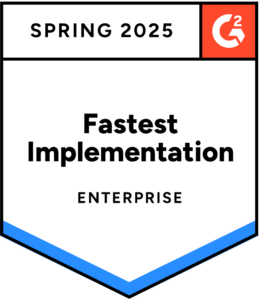4 Tips for Adapting to the Changing Accounting Profession
Blog post
Share
For years, the role of accountant has been synonymous with people who are smart, data-driven, and analytical. It’s a profession that exists across every vertical, geography, and business size. While those skillsets are still a key part of the role, the accounting practice is rapidly evolving. Tight budgets and staff shortages mean the office of finance is having to do more with less resources, while also needing to become revenue drivers to the business.
As technology and accountants themselves evolve to meet the changing demands, some organizations are finding themselves on their back foot, struggling to adapt. A department that was once primarily powered by spreadsheets is finding these tools are simply not enough to keep up with increasing complexity in areas like transaction matching or managing the month-end close and also not desired by the newest generation of accountants. Generations who are more comfortable using technology have found that not only can it be used to their advantage for everyday tasks, but that the overall functions of their jobs are being rewritten.
Trintech’s recent white paper, “Upskill Your Accounting Team for the Era of AI” dives into the new demands on the Office of Finance and offers tips to help accountants adapt to the changing profession.
Tip 1: Implement the Right Automation Tools
Seriously, how are accountants supposed to learn new skills and take on new projects if they are constantly understaffed and underwater? The answer is to empower teams with automation and AI tools that allow them to perform key tasks much faster and with greater accuracy. Automation tools for transaction matching, daily reconciliations, task management, intercompany accounting, and journal entries can save up to 75-95% off the time it takes for the financial close. This means more time for things that make a difference like strategic work, forecasting, learning new skills, and special projects – probably why they wanted to become an accountant in the first place, not just to maintain spreadsheets all day.
Tip 2: Upskill through Education Opportunities
While accountants are known for their meticulous recordkeeping and data analysis skills, those aren’t their only interests. By empowering them to learn new tools and skills, leaders aren’t just building a stronger team, they are creating happier employees. There are plenty of accounting-adjacent skillsets for individuals in the Office of Finance to pursue.
Formalized education and training in subjects like data visualization, statistical analysis, and cybersecurity will all support their existing skills in accounting. And knowing how to work with tools like Excel, Python, or data visualization platforms can be very useful. There are also resources available on YouTube, Udemy, and other learn-at-your-own-pace courses available. Team members can also join an organization like Toastmasters to improve their storytelling and public speaking skills to feel more confident in presenting insights. Or they can take advantage of online forums, blogs, and videos to learn how to better use accounting technology tools.
Tip 3: Peer-To-Peer Knowledge Sharing
Twenty years ago, the Office of Finance and IT rarely interacted, but today, these teams are increasingly teaming up to stay tightly aligned in both strategy and planning. With technology ingrained in just about every aspect of today’s businesses, this partnership helps ensure all systems:
- Are set up properly (data is flowing from the right systems to the right systems).
- Follow the required data security measures (a must!).
- Meet the needs of the organization and are being leveraged (no money wasted on multiple subscriptions to the same software, etc.).
Leaders must ensure the lines of communication are open so finance and IT teams can understand their peers’ concerns and priorities and gain a better understanding of other areas of opportunity. Not only does this help to make their jobs easier, but it also helps bolster the finance team as leaders in business development.
Tip 4: Leverage Expert Resources and Events
Outside of the organization, accounting and finance teams can upskill by learning from experts and others in the field. Many thrive on having the opportunity to attend conferences, events, and workshops to learn skills they can bring back into daily work. They can also attend webinars and online training. Some companies even offer certifications and continued education credits for taking various training courses.
This also helps team members build a network of peers and mentors in the accounting and auditing fields and can provide many opportunities to learn, share knowledge, and stay up to date on new topics. By budgeting for these types of learning opportunities, leaders are building stronger accounting and finance teams.
Conclusion
These are just a few tips offered in Trintech’s latest white paper, “Upskill Your Accounting Team for the Era of AI.” Download the white paper to also learn about other areas of opportunity and advancement and to understand where AI fits into the picture—including eight use cases for implementing AI in the financial close!
Written By: Lindsay Rose






